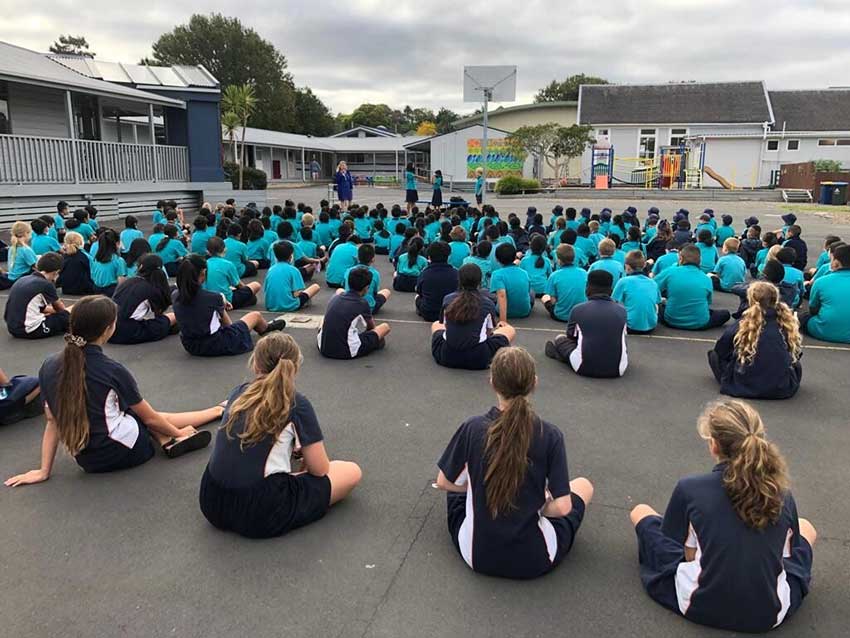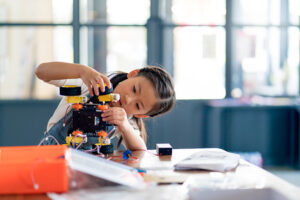ICAS boosts student engagement at Jireh Christian School

Every teacher knows that when students are engaged in class, fully focused on the ideas, tasks or problems in front of them, they are much more likely to succeed.1 Intrinsic motivation is one of their biggest allies for academic success, and teachers will do whatever they can to brighten this inner spark in students.

The teachers at Jireh Christian School in Auckland, New Zealand are no exception. As the Deputy Principal of the school, one of Vicki Morris’s (left) many tasks is to ensure her teachers have all the support they need to create thriving classrooms, where students are wholeheartedly engaged in their learning. And she’s been using one particular form of support for six years running: ICAS.
For Vicki, ICAS is an assessment tool that gives students the opportunity to compete against their peers and celebrate their achievements. But it also happens to be a potent motivator for the schools’ students, many of whom are so enthusiastic about the competition that they want to sit it again right away.
“The students all finish ICAS and are immediately asking when they can sit it again. They’re genuinely excited by the tests, and so every year we sign up for more and more because of the way the kids react.”
Who would have guessed that children would be so motivated by what are essentially exams? Vicki thinks it’s partly down to the format of the questions – which use real-world scenarios and encourage students to think critically – and partly due to wanting to do better and better every year. And it isn’t always predictable who will achieve the highest scores. In some instances, the children who reach the very pinnacle of ICAS achievement – a winner’s medal – can be wonderfully surprising, as shown by one of Jireh’s students in 2022.
Vicki and the other teachers at Jireh knew that this particular boy was naturally gifted, but he was also behaviourally challenged. They thought that ICAS might give him the opportunity to test his talents in a way that was different to his usual day-to-day schooling. As with their other students, they asked the boy’s mother whether she was willing to enter him into the competition, and she agreed.
After receiving the results, Vicki discovered that he’d won high distinctions in Mathematics, Spelling Bee, and a medal for English. And the most astonishing thing about this is that his first language is Mandarin. This disruptive, disengaged boy who struggled so much in regular classes absolutely shined when it came to ICAS. Here Vicki describes his acknowledgement from the rest of the school:
“During the school celebration, it was delightful to see the whole school celebrating this child. You could just see him thinking ‘everyone really likes me.’ It shows that he’s not just a ‘behaviour problem’, but an amazing brain.”
This is an extraordinary case, but Vicki sees the effect that ICAS can have on other children. Confidence is something that we’ve all struggled with, children or not, and it can sometimes be the difference between disengaging from a challenge or courageously charging into it. Because the competition is essentially a low stakes assessment, children can participate with the notion that there are no consequences for low scores, and that they should just try to engage with it and have fun. It’s an exam, but a “safe” exam that can help to build their self-esteem.

“I’ve seen students really rise in their confidence. Even if they haven’t done as well as they thought, I’ve been able to talk to them about why that is and help to foster a different attitude; a better approach.”
Vicki loves the excitement and engagement that the competition stirs in Jireh’s students, which is why she chooses to participate in ICAS every year. Engaged students are happy students; willing to knuckle down and try their best. She has seen the positive knock-on effect that flows throughout the entire school after completing ICAS, and encourages other schools to reap these benefits:
“I would love to see whole schools doing ICAS rather than individual students opting in. I think there are real benefits. There are always children who have big learning challenges who may not be suitable, but if you set the bar high for the remaining students, you’ll be surprised what they can reach. My exhortation to other schools is: give everyone a go.”
We’re thrilled that Vicki and Jireh Christian School have had so much success with ICAS, and that it helps to increase student engagement. We wish them the best of luck in this year’s competition!
References
Tag:Case study
 Vicki Morris
Vicki Morris


